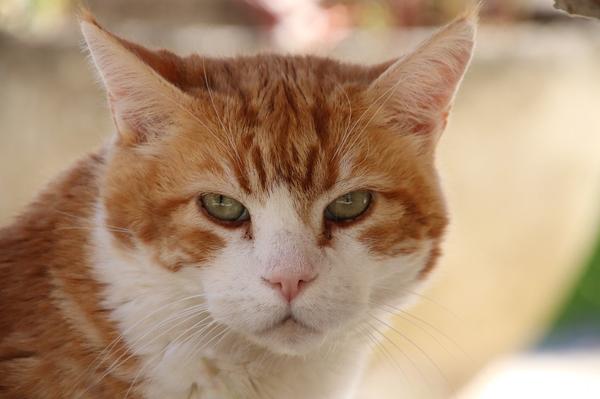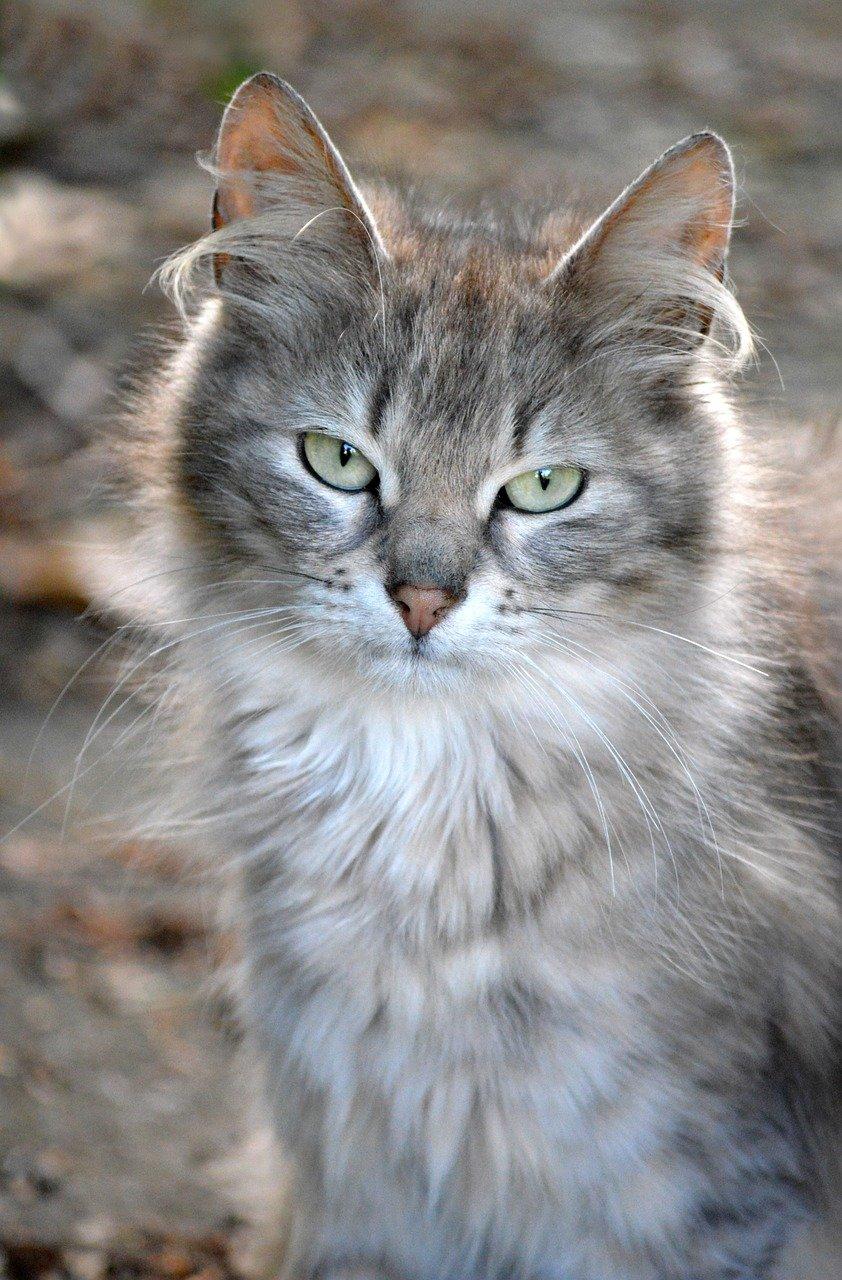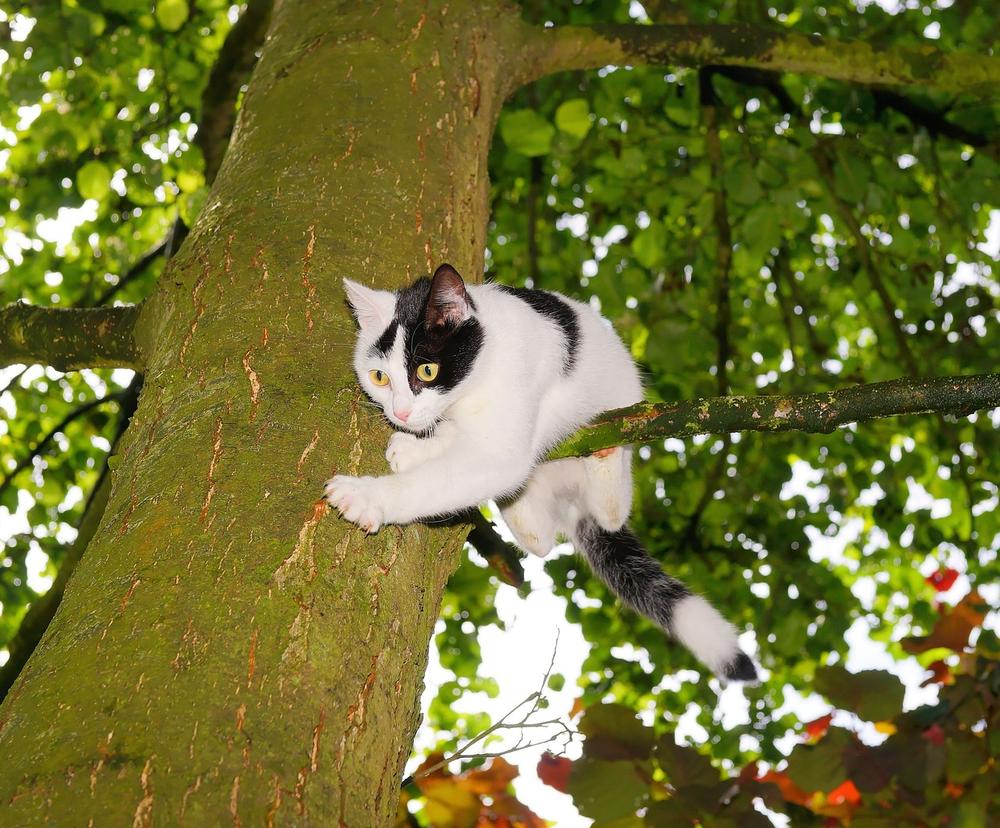Do Cats Feel Jealousy?

Jealousy.
It's a complex emotion, one that can turn the best of us into a raging monster. 😡
And let's face it, we've all been there.
You see your partner cozying up to someone else and suddenly, you're consumed with a burning sense of betrayal and rage.
It's not pretty.
So here's the burning question:
Do cats feel jealousy?
Can these furry little creatures really experience the depths of our darkest emotions?
Well, let's dive into this intriguing topic and find out, shall we?
Do Cats Feel Jealous?
Cats do experience jealousy, similar to humans. When they perceive a threat to their bond with you, they may subtly intervene or assert dominance. Jealousy in cats is rooted in status-induced aggression, where they view themselves as more dominant than some but less dominant than others.
Cats feel jealousy, just like us humans.
When they see someone or something that threatens their cuddle time with you, a twinge of jealousy can arise. Your cat won't throw a fit, but they might subtly come between you and the source of their jealousy.
They may also mark their territory more often to assert their dominance.

Animal behaviorists confirm this too.
These behaviors indicate jealousy in cats.
However, you should note that cats experience jealousy differently than humans.
For them, jealousy is more rooted in status-induced aggression. They see themselves as more dominant than some individuals but less dominant than others. Rest assured though, cats are still the lovable furballs we adore.
And now that we know cats are capable of feeling jealousy, let's explore some common situations that can trigger these emotions and how to address any jealous behavior they may exhibit:
What Situations Could Make Your Cat Jealous?
If you want to know what can make your cat jealous, pay attention to these 10 triggers:
- When you bring a new person or pet home.
- When you're not giving them enough attention.
- When they feel like they're being treated unfairly compared to other cats.
- When they see another cat getting more attention, treats, or meals than them.
- When they try to be the boss and get aggressive.
- When they get possessive over their sleeping spots.
- When they start hissing or growling at their feline pals.
- When they want what others have, whether it's food or toys.
- When they freak out about unfamiliar smells, sounds, and movements.
- When they get super territorial and start spraying. 🐾
There are plenty of reasons why your cat might feel jealous, like not being properly socialized, changes in their daily routine, or not having enough space.
Jealous cats might try to wedge themselves between you and the thing they're jealous of, scratch or bite, pick fights with new pets, or spray to claim territory.
Make sure to always keep an eye out for signs of jealousy if you want to keep your home a peaceful place.
Furthermore, if you've noticed your cat exhibiting aggressive behavior, like scratching or biting, especially while you sleep, there's no need to panic.
Understanding why this happens and finding ways to prevent it is crucial.
That's why I highly recommend checking out my blog post titled Why Does My Cat Bite Me When I Sleep.
How Can You Help Your Jealous Cat?
If you want to help your jealous cat, here's what you can do:
- Give each cat their own stuff - food bowls, litter boxes, beds. This way they won't have to fight over things.
- Make sure you treat them equally and fairly when it comes to treats and attention. If one cat starts causing problems, move them away so they don't get all jealous.
- To ease the jealousy, you gotta give each cat some individual attention, spend quality time with them, and show them positive reinforcement so they can adjust to any changes happening around them.
- And if the jealousy keeps sticking around, maybe it's time to call in the pros for some extra help.
- Try to encourage a peaceful living situation by giving your cats toys, cat trees, and stuff that keeps their brains occupied and distracted.
- Stick to a routine so your cats feel like there's some stability in their lives.
- Get to know your cat better by learning their body language, respecting their boundaries, and doing activities that stimulate them.
- If your cat gets anxious, spend more time with them and make sure they have access to their favorite toys to calm them down.
- Keep disturbances to a minimum and if needed, talk to a vet who might be able to provide anti-anxiety supplements or medications for your kitty.
- And last but not least, take precautions with cats that are aggressive.
Follow these tips, and you'll help your jealous cat feel safe and happy in your home.

And now, let's take a closer look at the signs of stress and jealousy in cats so that I can help you better understand and address these issues...
What Are the Signs That Your Jealous Cat Might Be Stressed?
Look out for signs of stress in your cat.
See if your furry friend might be stressed.
Cats can't express their emotions like we do, so they show stress in subtle ways.
One sign could be increased meowing.
Is your cat meowing more than usual?
That's a red flag. Another indicator is clinginess. If your fur baby becomes overly attached and doesn't want to leave your side, it might mean they're feeling stressed.
Pay attention to signs of jealousy in cats. Jealousy can manifest in different ways.
Be aware of these signs so you can address them appropriately.
If your cat is having issues with the litter box, that could be a sign of jealousy. Overgrooming and behaviors like cystitis can also indicate jealousy. Watch for any behavioral changes.
Is your normally sweet and loving cat suddenly acting out?
It may suggest jealousy creeping in.
Cat stress and jealousy can cause health problems. They can create both mental and physical issues for cats.
If left unchecked, it can lead to bullying among other cats in the house, resulting in fights and potential injuries.
Furthermore, jealousy-induced anxiety can cause health issues like urinary tract infections.
So, recognize and address signs of stress and jealousy to keep your feline friend happy and healthy.
Why Do Cats Get Anxious?
Cats can experience anxiety for various reasons.
- Environmental changes such as moving to a new home or the introduction of a new pet can make cats feel insecure and trigger anxious behaviors.
- Feeling excluded or neglected can lead to cats feeling anxious. Lack of attention or interaction from their owners can contribute to their insecurities.
- Jealousy can be a significant factor in cat anxiety. If a cat feels threatened by another person or pet receiving attention, they may become anxious and act out.
- Certain health conditions like hyperthyroidism or urinary tract infections can cause cats to feel more anxious.
- Traumatic experiences such as abuse or neglect can leave lasting emotional scars, making cats more prone to anxiety.
- Changes in routine or daily life, such as a new work schedule or loss of a family member, can disrupt a cat's sense of security and increase their likelihood of experiencing anxiety.
Understanding these potential triggers of cat anxiety is crucial in providing them with the care and support they need. 😺
Introduce New Cats Gradually
Introducing a new cat requires a patient approach.
Gradually introduce the new cat to the existing ones, facilitating positive interactions to minimize jealousy and stress.
Pheromone sprays can be used to create a calming environment.
Allocate a separate area for the new cat, easing their anxiety when meeting other family members or pets.
Remember that inter-cat aggression might arise, particularly between two male cats, but it is possible with any combination of genders.
Don't worry; with time and proper introductions, they'll likely establish a harmonious relationship.
The Emotional World of Cats: Summing Up
- Cats can experience emotions like jealousy, but not in the same way as humans.
- Jealousy in cats can stem from a variety of situations and can lead to aggression.
- Minimize competition by providing each cat with their own resources.
- Alleviate jealousy by giving individual attention and helping cats adjust to changes.
- Look for signs of stress and anxiety in cats, such as increased vocalization or destructive behavior.
- Jealousy in cats can lead to bullying and associated health problems.
- Anxious cats may display attention-seeking behavior as a result of feeling excluded.
- Gradually introduce new cats to minimize jealousy and stress.
And that wraps up today's article.
If you wish to read more of my useful articles, I recommend you check out some of these: What Does It Mean When Your Cat Licks You, What Does the Position of Your Cats Whiskers Mean, Why Does My Cat Put Their Paw on My Face, and What Does It Mean When a Cat Winks at You
Talk soon,
-Sarah Davis